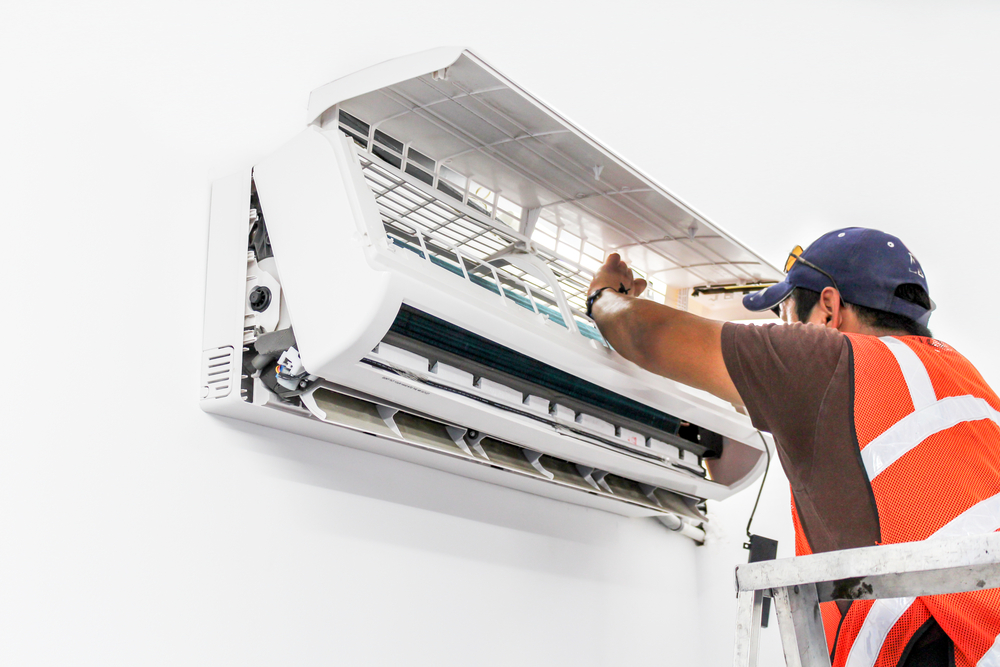So, you’re an HVAC owner, and you want to make sure your system lasts for as long as possible. You might have your ducts cleaned diligently (we recommend once every one or two years) and have a regular service contract with your local HVAC company, but that’s not all you need to do if you want to keep your system cost-effective. It also helps to perform some routine maintenance of your own, especially when you’re using your HVAC frequently. This brief guide to maintaining an HVAC system can help. Below, you’ll find our tips for keeping your heating and cooling technology in tip-top condition.
We’ve provided more than just a list of things you can do for your HVAC system. You’ll also find a list of things you should avoid doing—at least without professional help. Use this information to make sure that your HVAC is always in the best possible shape you can keep it in between service calls so that you can avoid high utility bills and surprise malfunctions.
Maintaining an HVAC System: Five Things You Should Do Regularly
 Here are the five most important things you can do on your own to preserve the condition of your HVAC system:
Here are the five most important things you can do on your own to preserve the condition of your HVAC system:
- Change your air filters.
The air filters on your HVAC prevent dust, pollen, and other debris from entering the ducts where they can congeal and form large blockages. Blockages that are left to grow will quickly begin to affect the air quality in your building and can eventually stop up the passage completely—which can cause a whole host of problems. Change the filters in your system once per month for best results.
- Keep the area around the outdoor unit clear.
The outdoor unit of your HVAC allows heat from the air in your home to be released to the outside when your air conditioner is running and allows toxic byproducts of the heating process out when your furnace is working. As such, it provides a connection between the outside and the inside of your home. If insects, small animals, twigs, leaves, lawn clippings, or other unwanted objects make their way into that connection, it can be even worse than the consequences of not changing your filters. We recommend walking around your outdoor unit once every weekend or so and clearing debris away from it by at least two feet.
- Insulate and seal your building.
Even a well-maintained HVAC can be inefficient if the walls of your home allow heat to move through them too easily. Make sure that the air your system works so hard to treat maintains its temperature by improving the insulation in your building. It’s a good idea to take a walk through the building once at the start of each cooling or heating season and look for leaks where heat could be coming in or out. Sealing them up can result in significant savings on your energy bills and allow your system to stop working as hard for the results you want.
- Keep an eye on your thermostat.
What many people believe to be major HVAC malfunctions can often be attributed to simple thermostat problems, so pay close attention to yours. Your thermostat tells your HVAC whether to use the air conditioner or the furnace, and to shut down when the required temperature has been achieved. As such, an HVAC will not run efficiently (or at all) if the thermostat has been programmed incorrectly or damaged. In some cases, even something as simple as a weak battery can cause problems. Check the thermostat first whenever you’re experiencing anomalies with the performance of your HVAC.
- Be proactive about seeking professional assistance.
Knowing when your own skills won’t be enough to deal with a problem is a skill in and of itself. If you’re up against something that you can’t handle, make sure you call in licensed professionals as soon as you can. Delays will give whatever’s wrong a chance to affect other important parts of your system and can be much costlier than having a problem fixed while it’s still small.
Don’t Try These at Home:
There are certain things you might be tempted to do by yourself, but it’s best not to unless you’re a licensed contractor. They include:
- Working with refrigerant lines, since the chemicals inside can be hazardous
- Cleaning pilot lights and igniters in your furnace, since they are sensitive and easily damaged
- Tampering with your furnace gas valve, since it can risk a gas leak
- Adjusting electrical components, since working around high voltage is risky
Maintaining an HVAC System is a Team Effort
Now that you have a better grasp of your responsibilities as an HVAC owner, you should be able to keep your system clean and safe between service calls. The right balance of conscientious work on your part and assistance from established pros can keep your system cost-effective well into the future.
Check with us here at Valley Comfort Heating and Air, our customers love our attention to detail and our friendly, affordable service. (707) 539-4533


